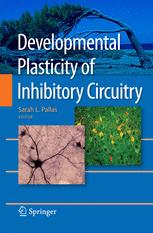

Most ebook files are in PDF format, so you can easily read them using various software such as Foxit Reader or directly on the Google Chrome browser.
Some ebook files are released by publishers in other formats such as .awz, .mobi, .epub, .fb2, etc. You may need to install specific software to read these formats on mobile/PC, such as Calibre.
Please read the tutorial at this link: https://ebookbell.com/faq
We offer FREE conversion to the popular formats you request; however, this may take some time. Therefore, right after payment, please email us, and we will try to provide the service as quickly as possible.
For some exceptional file formats or broken links (if any), please refrain from opening any disputes. Instead, email us first, and we will try to assist within a maximum of 6 hours.
EbookBell Team

4.8
34 reviewsNeuroscience has long been focused on understanding neural plasticity in both development and adulthood. However, experimental work in this area has focused almost entirely on plasticity at excitatory synapses. A growing body of evidence suggests that plasticity at inhibitory GABAergic and glycinergic synapses is of critical importance during both development and aging. Only a few investigators have been engaged in research on how inhibitory circuits are formed during development or how they are involved in plasticity of developing sensory and motor circuitry. Developmental Plasticity of Inhibitory Circuitry approaches the subject of inhibitory plasticity from several levels of analysis, from synapses to circuits to systems to clinical, summarizing several possible mechanisms and collecting some of the most fascinating work in this under-studied area. It is meant to provide an overview for basic and clinical researchers and students interested in neural plasticity and to stimulate further research.
About the Editor:
Dr. Sarah L. Pallas is a Professor of Neuroscience and Biology at Georgia State University. She earned her Ph.D. in Neurobiology and Behavior at Cornell University, under the tutelage of Dr. Barbara Finlay. Her postdoctoral training was received at M.I.T. in the laboratory of Dr. Mriganka Sur. Her research concerns developmental neurobiology and sensory physiology, and in particular the role of sensory experience in the development and plasticity of neural circuits.